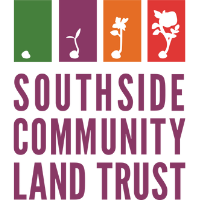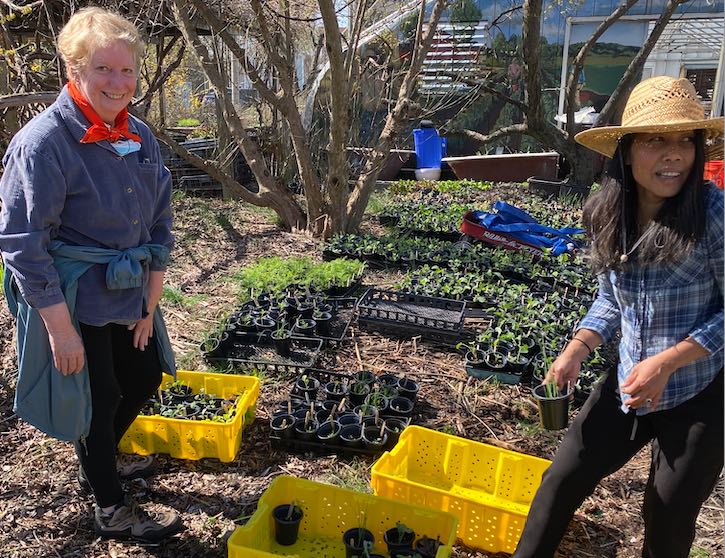SCLT and other local organizations with overlapping missions have been collaborating in new and creative ways, especially since the start of the pandemic, to support our state’s one in four BIPOC families that still cannot meet their basic food needs.
One of these partnerships is with Hope’s Harvest, which was founded in 2018 to reduce both hunger and food waste. Hope’s Harvest’s volunteers glean unharvested produce from local farms and donate it to hunger relief agencies. They also distribute food plants grown at City Farm to community organizations serving food-insecure clients. By the end of April, City Farm will have donated roughly 10,000 vegetable and herb plants since 2020.
“We’re now in our third year of picking up plants from City Farm and delivering them to agencies that serve residents of the South Side and other adjoining neighborhoods, including the Community Action Partnership of Providence, the Olneyville Food Center, and the Elisha Project,” said Eva Agudelo, Hope’s Harvest director.
Shannon Hickey helped arrange for City Farm plant donations to the Elisha Project and Beautiful Day Granola last week. She said staff at the latter plans to use 50 vegetable and herb plants for a gardening activity involving their younger and older refugees.
Hope’s Harvest has also partnered with farmers in SCLT’s network, including Margarita and Teodulio Martinez and Charlotte Uwimpuhwe, who all grow at Urban Edge Farm in Cranston. Last year, they grew over 15,000 pounds of fresh produce that Hope’s Harvest provided to hunger relief agencies across the state. Eva says they plan to double that amount in 2022.
This collaboration “was part of our commitment to supporting a holistic food system that provides sustainable livelihoods for growers who serve their communities,” said Eva.
“It’s a great blessing to partner with SCLT because their deep focus on food justice and equity makes it easier for all of us to further these values in our adjacent and complementary work.”
– Jenny Boone
SCLT Grants & Communications Manager


